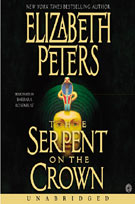
Gregory has previously mined the lives of the Tudors in The Other Boleyn Girl, The Boleyn Inheritance, The Queen's Fool and The Virgin's Lover. The Constant Princess is the story of Katherine of Aragon--more specifically, her life prior to 1514 and the birth of Mary I.
Gregory doesn't replow the years Katherine is best known for--the years in which Henry VIII struggled to rid himself of her in order to marry Anne Boleyn. These years are well covered in The Other Boleyn Girl, albeit from a different perspective. Katherine is only a marginal figure in that book, as she has seemed in history.
As a Protestant myself, I have found myself irritated by Katherine's refusal to step aside, because I know how the story ends with the glorious and long reign of Elizabeth I. As a result, I have always seen her refusal to step away as a dam in the flow of history, which was remedied by Henry's break with the Roman Church and Katherine's death in 1536. It is useful to be reminded that no one knew at the time what would happen, and Katherine had her own reasons for refusing to be supplanted.
However, save yourself the time and don't bother reading this book. Gregory simply doesn't have the grasp of her material that she had in the Boleyn books. There are basically two ideas in this book, reiterated ad nasuseum: Katherine was raised by fanatic believers in the True Religion; and Katherine's marriage to Arthur (Henry's older brother) was not only consummated, but was the One True Love of her life. Thus the Great Question of Katherine's divorce--was she married in name only to Arthur?--is answered here by Gregory's frankly syrupy depictions of Katherine and Arthur as the Tristan and Isolde of their age. Sent off to Wales to "learn to rule," Arthur spends all his time sneaking into her rooms (why? Well, no good reason, except that historically, it seems that the two spent very little time together except as ordered--which does not support Gregory's theory of Twue Wuve). There the two of them have sex multiple times, and then engage in pillow talk about making England a great country--the New Camelot.
It is to gag. I mean, really! Arthur was about 15 when he married, and he died about five months later. Sure, the marriage was probably consummated--that's why she had come all the way from Spain. But really--her One True Soul Mate for All Time? Gregory piles on the slop with a deathbed promise--Katherine promises her nearly dead husband that she will stay in England, marry Prince Harry, become Queen of England, and make the England the two of them had planned. Oh, how Noble and Selfless these two were! How tragic for the country that the Real King should have died and his younger brother--who had never been taught to rule--should inherit the crown.
Let's get down to facts. Arthur was no more than 16 when he died. Even had he lived, he was not ready to rule at that age. Henry was then 11 years old, maybe 12. He was thus the heir apparent for six or seven years--enough time for him to have been taught everything he needed to know about ruling--or at least as much as Arthur knew when he died.
But no. Gregory can't have that--it interferes with the picture of True Love. Henry has to be--in every way--Arthur's inferior. Katherine has to do everything she does because of her Deathbed Promise to Arthur. Even though she knew Arthur for less than 5 months, and was married to Henry seven YEARS after Arthur's death, and remained married to Henry for 23 YEARS before he married Anne Boleyn--her heart was always true to Arthur. At best, it's not remotely believable, at worst, it's downright delusional.
Gregory hasn't finished, however. Despite being the daughter of Ferdinand and Isabella, despite going on the campaigns which drove the Muslims from Spain--Katherine meets a single Muslim and immediately comes to understand that her entire understanding of them was wrong. They aren't heretics to be converted or killed! They are just people who deserve to have their own understanding of God! That just smacks of pandering to contemporary culture. But, once you take away Katherine's faith--why else would she refuse to accept the new religion?
Oh, right. Because she promised Arthur that she would be Queen. It has nothing to do with her bloody inculcation into the Christian cause; nothing to do with forging a single nation out of warring factions through the imposition of a single faith. No--it's just Twue Wuvve--the Wuvve that outlasts life itself.
Well, barf. I would prefer a woman who is not magically capable of running an entire country without any training; I would believe in a woman who stood by her duty to God as she understood it; I would understand a woman who had intellect and ambition to make a country out of the remnants of the Wars of the Roses. I gag at this "I'm doing this all for you, dearest Arthur!" picture Gregory foists upon us.
Interestingly, each of my girls picked up this book at one point--it took me a long time to finish it, as you can probably guess by my review. Each girl read the promo material on the back "[I]t is Katherine herself who takes control of her own life by telling the most audacious lie in English history[.]" Each girl asked me what that lie was. How do you explain the whole nonsense about Henry marrying his brother's widow, and the farcical court of inquiry into whether Katherine had been a virgin 23 years before? I ended up saying something succinct like "Katherine had been married to Henry's older brother before she married him. The lie is that she said they never had sex." To which both girls said: "Ewwwww."
Which really is the proper response to this book.




